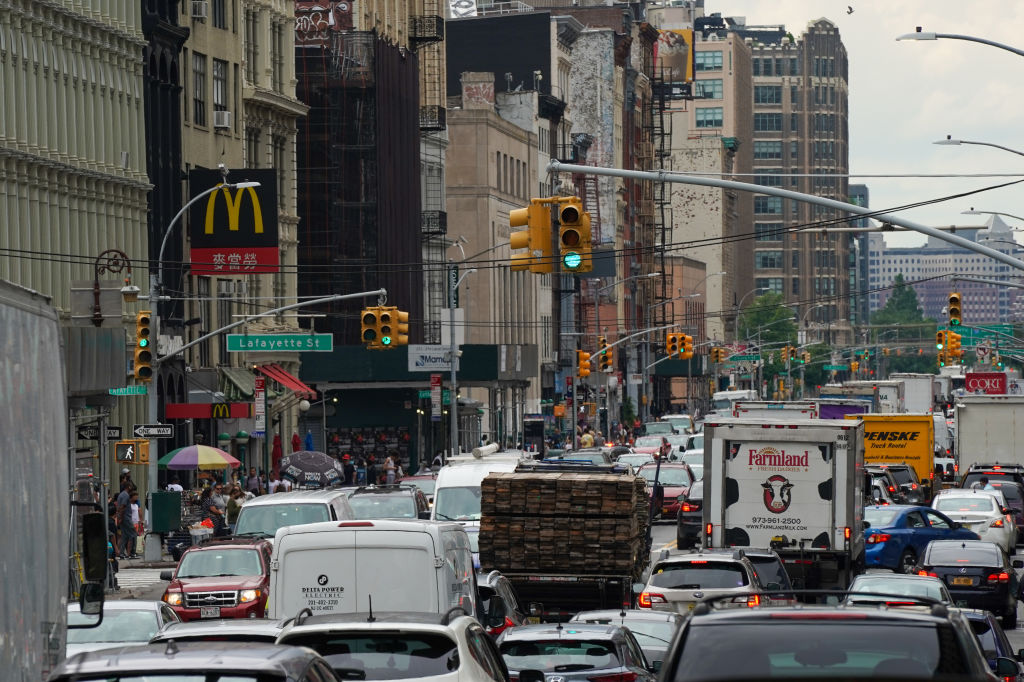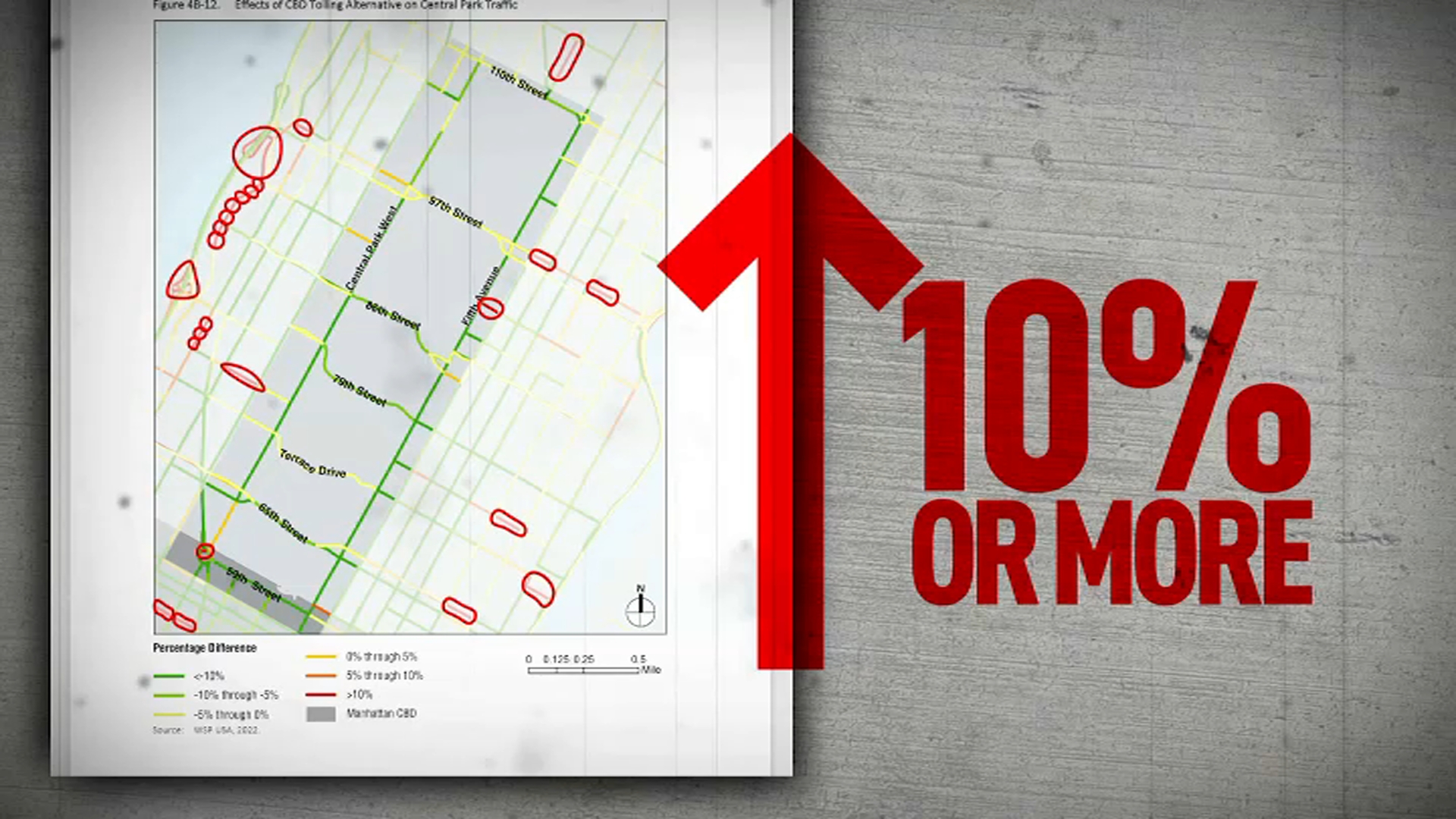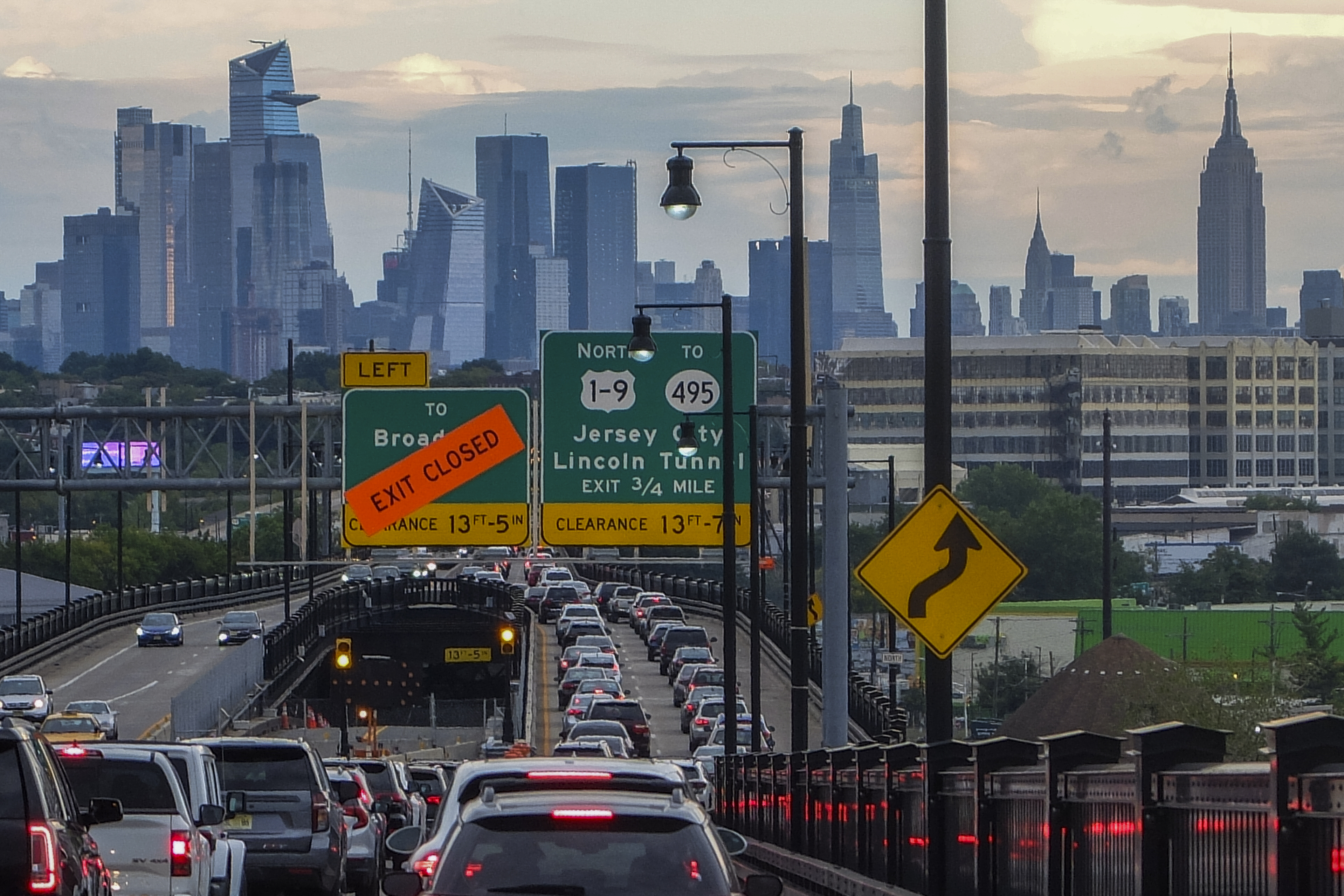What to Know
- A 30-day public notice period begins before a final determination on the plan. If no roadblocks pop up between now and then, drivers could start paying more as early as next year
- Federal approval is expected in June, which would begin a 310-day countdown toward starting a toll that would range from $9 to $23 for entering Manhattan south of 60th Street
- Late-night drivers entering the borough below 60th Street (coined the Central Business District) would be charged 50% less between 12 a.m. and 4 a.m.; it's one of several measures included in the state's environmental assessment released to the public on Friday
Motorists driving Manhattan's most congested streets can expect a deep overnight discount when a projected toll takes effect next year.
Late-night drivers entering the borough below 60th Street (coined the Central Business District) will be charged at least 50% less between 12 a.m. and 4 a.m.; it's one of several measures included in the state's environmental assessment released to the public on Friday.
New York's congestion pricing plan is nearing the finish line as a 30-day public notice period kicks off, leaving the final determination on the state's highly-anticipated and long-debated congestion pricing plan only weeks away. At the end of the public review, the Federal Highway Administration will give the final green light.
The new toll rate, expected as early as next spring, has yet to be determined -- that decision will fall on the MTA Board over the next year. But the assessment provides the first preview of a few discounts offered to drivers once tolling starts.
Environmental justice efforts included in the assessment would provide a 25% discount to low-income drivers (those who make less than $50,000 a year) after completing 10 trips in a calendar month -- those 10 trips don't include overnight charges. Nearly $50 million has been earmarked for the driver discount program.
Get Tri-state area news delivered to your inbox.> Sign up for NBC New York's News Headlines newsletter.
In a boon for taxis and other rideshare operators, tolls will only be charged for those drivers once per day.
There are many who want a discount, but it will be up to the MTA Board to determine who gets one — and for how much.
"As you can imagine, over 100 groups have said 'Give me a discount or exemption.' That's not possible, but [the board] will have to weigh that," said MTA Chairman Janno Lieber.
The MTA has long argued that congestion pricing is essential to their bottom line and would net them $1 billion annually. Revenue from the plan would be used to back borrowing for capital improvements to the MTA’s subway and bus systems.
New York’s Legislature approved a conceptual plan for congestion pricing in 2019 and it was initially projected to be in place in 2021. But the pandemic and a lack of guidance from federal regulators on the type of environmental review that was required combined to stall the project.
The next step? A 30-day public notice period begins before a final determination on the plan. If no roadblocks pop up between now and then, drivers could start paying more as early as next year.
Federal approval is expected in June, which would begin a 310-day countdown toward starting a toll that would range from $9 to $23 for entering Manhattan south of 60th Street. The MTA Board would determine who gets an exemption and which corners or lampposts get the license plate readers.
The plan has plenty of nay-sayers. A Lyft spokesperson called the plan an "infeasible logistical nightmare." A big-time bipartisan pushback effort, backed by lawmakers on both sides of the Hudson River, has sought to stop drivers from paying more to get into town.
Some lawmakers in New Jersey have said the plan is unfair because motorists already pay tolls at bridges and tunnels to enter New York, and the money from congestion pricing won't be used to improve public transit in New Jersey. Some motorists paying tolls to enter Manhattan from New Jersey are expected to receive discounts or be exempt.
New Jersey Rep. Josh Gottheimer, who called it "absurd double taxation at its finest," said that the federal approval doesn't mean the plan is set in stone — or a good idea.
"Not only will it lead to more congestion and more traffic, but it will completely devastate commuters," he said.
Last week, a group of New Jersey lawmakers wrote to New York Gov. Kathy Hochul, urging her to suspend implementation of the congestion pricing plan.
“New Jersey commuters already pay a $17 toll when they cross the Holland and Lincoln Tunnels, almost double the toll paid on the bridges connecting Manhattan, Queens, and the Bronx. As a result, this congestion price would uniquely double tax New Jerseyans and result in our constituents paying upwards of $40 just to get to work every day," Representative Mikie Sherrill, and half a dozen other lawmakers, wrote.
"At a time when families across the Northeast are already dealing with rising prices and high costs of living, this added tax on simply getting to work is unacceptable."
New details from a recent MTA financial plan suggest drivers would not see the start of congestion pricing until April 2024, at the earliest. But already there are some who predict traffic in certain spots will get worse if drivers avoid Manhattan. As a result, the MTA has promised to kick in $15 million dollars on clean air projects to offset whatever pollution they create.




